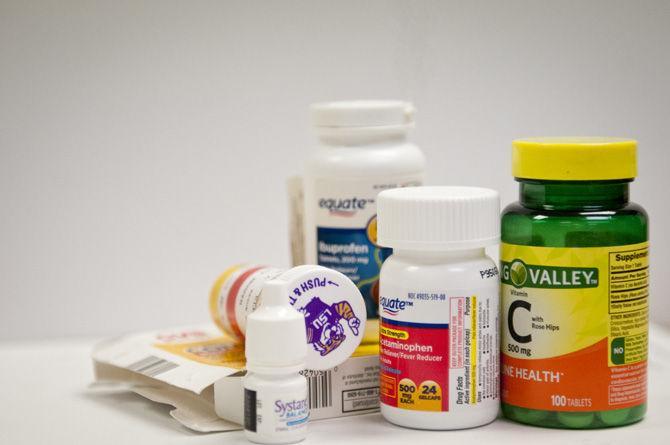The future of LSU Student Health Center’s pharmacy is up for grabs.
LSU is headed the same way as the state’s former public hospitals.
In an effort to save money on students’ prescriptions, the LSU Student Health Center’s pharmacy will be privately operated next semester.
Privatizing the SHC’s pharmacy will supposedly save LSU
from raising the $155 per semester fee for full-time students, but costs will be delivered to students through other avenues. According to Manship News Service, D’Ann Morris said the SHC subsidized the pharmacy around $100,000 a year. She believes the pharmacy should be “self-sustaining.”
So what will make a private pharmacy contractor self-sustaining? Hiking prescription prices on students. Many of the prescriptions at the pharmacy are a bargain. For example, a bottle of 100 200mg tablets of Ibuprofen is $5. The
comparable CVS Pharmacy brand Ibuprofen costs $8.49. The savings of $3.49 might not seem like much. However, if you fill a monthly prescription from the SHC, these savings add up over a year.
These savings mean a lot to a population already scrambling for money. Many LSU students work minimum wage jobs where every penny counts. Nationally, 17 percent of people ages 19 to 25 were uninsured in 2014, and these figures are even higher for black and Hispanic students.
Often, private contractors don’t live up to the obligations set by the government. Gov. Bobby Jindal’s privatization of the LSU hospital system and university health centers around the country show what a disaster this can turn into.
This past summer, LSU sent an 11-page letter detailing how the private operator failed to live up to its agreement. LSU President F. King Alexander wrote, “The BRF
Parties have consistently engaged in actions and activities that are
contrary and oftentimes antagonistic to the best interests of LSU and the State of Louisiana.”
Many of these privatization efforts intend to form a collaboration between private hospitals and universities but fall short. The University of Northern Colorado outsourced its health center in 2003 to a private operator. From there, things went south. In 2006, the private operator asked to be freed from its contract because they were unable to make a profit.
Accountability remains a concern for privatizing SHC’s pharmacy when a private operator can go out of business at any time. Auburn University privatized its student health center in 1996 only to find five years later Collegiate Health Care, a national corporation that managed Auburn and nine other university centers, went bankrupt.
While LSU’s decision to privatize its SHC pharmacy seems out of the blue, many other universities experienced the same shock. The University of Nebraska-Lincoln announced it would privatize its entire health center to the shock of its students.
A quick look at the Q&A section on its health center website illustrates how little University of Nebraska-Lincoln administration researched this issue. One question asks what specific research did the University of Nebraska- Lincoln use to look at the reasons for success and failure of privatizing their health services. The answer: “UNL conducted no specific research.”
Privatizing the SHC pharmacy leaves more questions than answers. Did LSU conduct a study regarding the pros and cons of privatizing the SHC pharmacy? Does LSU have a metric to determine the quality of care with a private operator of the pharmacy? Will LSU hire a private operator solely focused on profiting on students’ health care?
Students deserve high-quality care when they go to the SHC pharmacy. Private operators have a mixed track record of accountability and improving the health care needs of the students they serve.
College students are trying to shape their future and need to be in good health to do so. Gambling on a private operator only makes student success out of reach.
Michael Beyer is a 21-year-old political science senior from New Orleans. You can reach him on Twitter at @michbeyer
Opinion: Privatizing LSU’s pharmacy is a mistake
October 8, 2015
Medications like these may cost students more if LSU privatizes its pharmacy.
More to Discover











